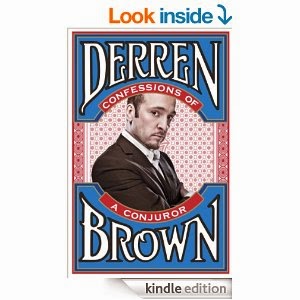Finally! A book about optimism and positive thinking that is based on science. And the result is surprising.
We have been told for decades that positive thinking is a good thing, every time we have a negative thought we should reframe it in a positive way, and that being optimistic is healthy.
Turns out this is all wrong. People who regularly indulge in positive self talk and fantasies are less productive than people who are more realistic. Visualising yourself living a life of luxury, running a successful business, being fit,slim and healthy, etc. means you are far less likely to achieve those goals.
In this book Oettingen details the research she has undertaken over more than thirty years, in both Germany and the USA, into the effects of positive visualisation and fantasies. Turns out these activities are excellent for lowering stress, reducing blood pressure and increasing one's ability to wait patiently or to endure less than ideal circumstances. They are so good, in fact, at calming you down that they actually reduce the energy, motivation, will and desire to take action to achieve one's goals. Helpful if you are stuck in a situation you have absolutely no control over, like people living in East German before the Berlin wall came down, but not much help for anyone that actually wants to get something done.
Thankfully Oettingen's research did not stop there and she looked at what actually did work in helping people to achieve their goals and take action. Again the result was a surprise. It turns out that mentally rehearsing everything going right won't help but visualising all the obstacles and things that can go wrong will. When her study participants fantasised about achieving a cherished goal and then fantasised about the obstacles one of two things happened. Either the dreamer decided their goal was unachievable, the obstacles insurmountable and the outcome not worth the effort and they stopped wasting their time on the goal or they decided the opposite and almost immediately took action to make their dream a reality.
Like all good psychology experiments the results seem like common-sense with hindsight but we are so used to the self-help community peddling the notion that we can 'think and grow rich' or that the abundant universe will answer our prayers that this common-sense notion seems quite radical.
Oettingen takes us one step further on this journey towards action by looking at the most effective way to plan for our success and this is through using an 'if... then' formula. Unlike most planning which is vague and ineffectual an 'if... then' formula provides us with a specific action to take and a specific time or situation to take it in. This is the kind of planning that builds habits and helps us to avoid temptation. If our goal is to get fit then the vague idea to 'do more exercise' becomes a concrete plan 'if it is 6pm then I will go to the gym'.
Although this is a scientific book based on solid scientific research, Oettingen does provide an easy to use formula for making the most of her research. To provide the best template for the kind of thinking required to start taking action, she came up with the acronym WOOP. There are even two apps available - one for school students and one for adults - which provide this template for you.
WOOP stands for Wish, Outcome, Obstacle, Plan. The idea is that you spend some time visualising your wish, vividly picture the outcome you want and how good it will feel to achieve that goal, then picture the obstacle(s) standing in your way. At this point you will probably realise whether your wish is achievable or not. Allowing yourself to really feel the benefit of the desire will help you to decide how much you really do want it. By then focusing on the obstacles in your way your creative mind will come up with all sorts of solutions and as you dig deeper even get to the bottom of the 'real' obstacle which will inevitably be some behaviour of your own which you can change. At this point the 'if... then' plan will be easy to construct. It is essential that the process is done in this order. Over many experiments, Oettingen discovered that visualising the obstacle before the outcome led to no increase in action.
Obviously better results were achieved by subjects who used the WOOP formula regularly but even those who only used it once found themselves subconsciously moving closer towards their goals.
Overall this was a fantastic book with real detail and depth, solid scientific experiments and practical steps to take. There was no 'secret' involved, no abundant universe or 'higher power' just harnessing the power of your own mind to get you what you want. Brilliant.






